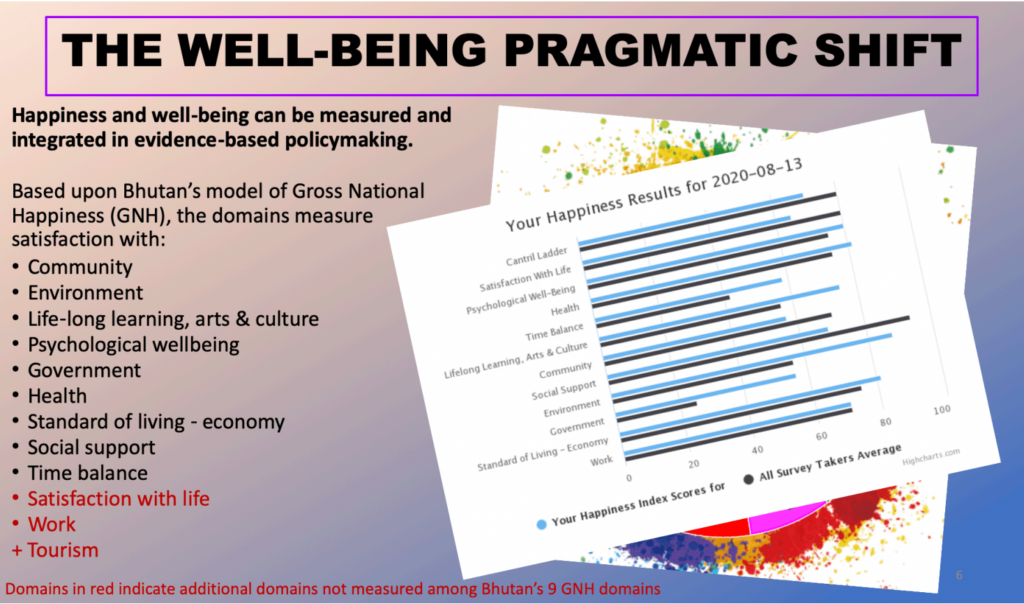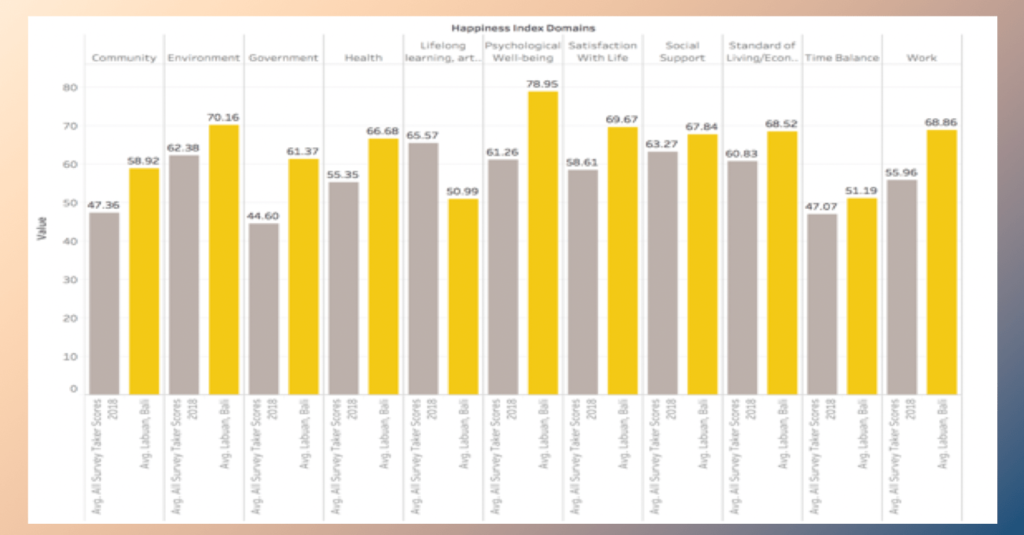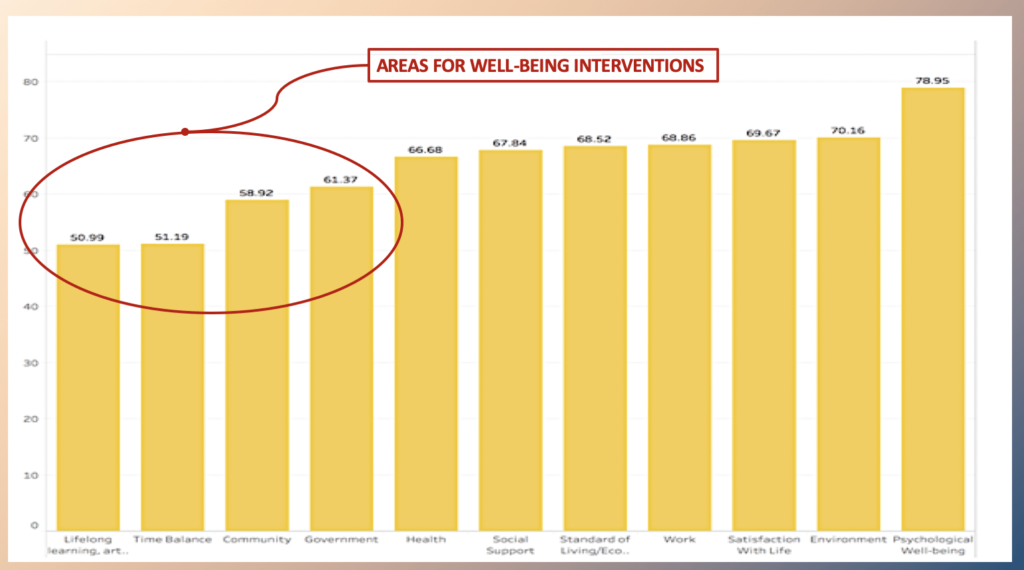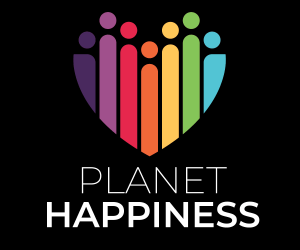Why build well-being into destination resilience and tourism recovery?

Much has been written about including host communities in destination management and tourism development decision-making, but how would one go about measuring contentment, well-being, or even happiness, on an ongoing basis? In this “Good Tourism” Insight, Paul Rogers of “GT” Insight Partner Planet Happiness presents a solution.
Prior to the onset of the COVID-19 global pandemic, issues surrounding overtourism and the sector’s contribution to climate change were arguably the biggest challenges facing the travel & tourism industry. Should we be honest and recognise that planners and policy-makers (and the industry generally) were struggling to respond to these big-ticket items; and that a key element of this struggle is the effectiveness of stakeholder engagement processes? How do we overcome deficiencies in travel & tourism management systems to make them more purposeful and efficient?
Can more inclusive and effective systems be designed to:
- relieve pressure on host communities, natural and cultural assets, and attractions;
- deliver greater equity in the distribution of tourism dollars; and
- reduce the sector’s carbon emissions, which threaten not just the liveability of destinations but life on the planet as we know it?
These are all huge tasks.
Movers and shakers in this diverse industry, which serves as an engine of local and national transformation, recognise that host community, industry, and government engagement is needed to address these challenges. Destination solutions to overtourism can only be found if governments and businesses actively work with host communities to better understand the extent to which their quality of life is affected by visitor flows and behaviour (and related effects such as inflated property prices, for example). In short, innovative and more action-oriented stakeholder processes are sorely needed.
While destinations such as Amsterdam, Bruges, and Thompson Okanagan have been leading the way with resident outreach, it might be said there are too few “off-the-shelf”, recognisable methods available to destinations.
Should an accessible and engaging process be available, imagine for a moment what it might look like. Owing to the fact that tourism is a people-focused industry, is there merit in looking to host communities for answers, with their quality of life as a core motivator? After all, a great place to live is a great place to visit.
Before suggesting where solutions may lie, we make the point again that prior to COVID-19, systemic weaknesses with tourism management processes led to overtourism as businesses clamoured for profits, governments celebrated ‘USPs’ and ‘KPIs’ (mainly visitor arrivals and revenues), and visitors sought their next enviable selfie. In this mix of priorities, host communities have been slowly but surely disenfranchised.
Hence, a fundamental goal and starting point in the design to build back better must be to position host community well-being front and centre. Indeed, developing tourism to support host community well-being is systematically embraced and globally advocated in the GSTC Criteria, the ASEAN Tourism Standards, and more besides.
But what does this term well-being actually mean?
Well-being!? What’s that?
Following the August 2011 signing of UN Resolution 65/309, “Happiness: towards a holistic approach to development” and the “High-Level Meeting on Happiness and Well-being: Defining a New Economic Paradigm” chaired by Secretary General Ban Ki-moon, at the UN in NYC in April 2012, much progress has been made in this policy arena, including defining and measuring well-being.
New Zealand’s Treasury for example, uses well-being screening tools to allocate departmental budgets and all EU member countries are engaged in various forms of happiness measurement and policy making. Moreover, the collection and analysis of centrally-collated, objective well-being data underpin annual World Happiness Reports produced by the UN and the World Happiness Council.
While this is all very encouraging, it’s worth noting that information in these high-level approaches often stays with policy-makers and is rarely communicated down to the grass-roots where news of its relevance and purpose is sorely needed to encourage engagement in local development issues. This is where subjective indicators of well-being can help and we use the example of the Happiness Index to explain further.
The Happiness Index
The Happiness Index survey, used by Planet Happiness (a tourism and big data project) is available on-line in 25 languages and counting. An OECD-recognised best-practice measure of well-being, the survey takes 10 – 15 mins to complete. At the end, survey-takers receive a one-page score-card profiling their well-being scores across 11 domains with all other survey-takers. The score-cards:
- spark conversations between families, friends, and work colleagues about the strengths and deficiencies of their scores;
- introduce survey-takers to a definition of well-being and how to measure it; and,
- provide traction for grass-roots understanding of, and engagement with, the tourism and destination well-being agenda.

We see this as an exciting opportunity. When the Happiness Index is deployed in tourism destinations, one-page score cards of aggregated individual results are produced providing a snap-shot of a destination’s well-being. This allows tourism stakeholders to consider the highs and lows of the destination’s well-being (by neighbourhood, if needed) and determine what policies, projects, and actions are needed to improve the quality of life of host communities (and target neighbourhoods). It allows planners to ask, and residents to answer this question: How should the tourism sector be structured and organised to avoid overtourism and strengthen destination well-being?


Viewed in this way, this explains why the mission of Planet Happiness is to focus the attention of all tourism stakeholders on the well-being agenda; and to use tourism as a vehicle for development that demonstrably strengthens destination sustainability and the quality of life of host communities.
Planet Happiness’ peer-reviewed mission and process proposes an important shift in the governance approach to tourism development. But is it sufficiently relevant to inspire destination managers who are seeking to recover from a global pandemic like no other, with more than 100 million travel & tourism jobs lost around the world?
The quick answer is “no”. While the interest Planet Happiness has garnered in 2020 is growing, destinations are first and foremost focused upon keeping businesses afloat and, where possible, their employees compensated. But let’s not be deterred.
One of the silver linings on the dark cloud of COVID-19 is the impetus it has given to pause and reconsider the future we want to build. Given tourism is an extremely competitive industry with a growing social and environmental consciousness, destinations have to deeply consider their reputation and branding. With this comes the need to look to greater sustainability to advance their competitive edge.
Destination managers (businesses and governments) have to think deeply about many issues: carbon emissions; cleaner technologies; transport planning; recycling and waste management; plastics; food waste; minimising economic leakage and maximising income for locals (especially in agricultural economies); targeting the right visitors; and creating personalised tours, excursions, and visitor experiences that bring locals and visitors together to create those memorable moments that stay in our minds forever.
Achieving all this and more means designing and driving a system that pro-actively engages not just multiple government departments and tourism businesses of all scales and dimensions, but also industry employees and destination residents.
Circle of trust
This brings us nicely back to the value and purpose of building well-being metrics into destination resilience and recovery. Among other benefits, this process helps to:
- build trust, alignment, and synergies between all stakeholders;
- bring new ideas into product and excursion development (often around heritage, the arts, and culture);
- encourage stronger linkages between tourism businesses and host communities;
- generate a wide array and stock of story-lines to use in branding and marketing strategies; and
- create traction for the introduction by local and national governments of well-being policies as part of their commitment to the UN’s Sustainable Development Goals.
In doing all this and more, the process supports the design and delivery of quality places to live and visit that we all want to see, enjoy and be inspired by.
Looking ahead, isn’t it inevitable that tourism and destination well-being will become stronger bed-fellows?
If you’re interested to learn more, find me at Planet Happiness where we offer affordable and accessible tools and resources to drive and deliver a progressive agenda.
What do you think about Planet Happiness’ philosophy and approach? Share a short anecdote or comment below. Or write a deeper “GT” Insight. The “Good Tourism” Blog welcomes diversity of opinion and perspective about travel & tourism because travel & tourism is everyone’s business.
Featured image (top of post): A Thongdrel, a religious image composed of several layers of silk depicting the Guru Rinpoche surrounded by holy beings; displayed once a year as the highlight of a Bhutanese tsechu (religious festival). Image by Paul Rogers.
About the author

Paul Rogers is a tourism-for-development practitioner focused on policy and planning. With 20 years’ experience as a senior tourism advisor to national and local tourism organisations, he has worked in more than a dozen countries in South and Southeast Asia, Africa, and Australia. In recent years Paul has undertaken assignments for the World Bank, ADB, FAO, DfID, UNDP, UNWTO, USAID, ICIMOD, Luxembourg Development, Kew Gardens, Istituto Oikos, SNV (Netherlands Development Organisation), and WWF.
Building on his significant experience, Dr Rogers co-founded Planet Happiness, a project of the Happiness Alliance. The Happiness Alliance is a US-registered not-for-profit that measures the happiness of residents living in World Heritage sites and beyond. Planet Happiness’ mission is to “focus the attention of all tourism stakeholders on the well-being agenda; and use tourism as a vehicle for development that demonstrably strengthens destination sustainability and the quality of life of host communities”.
Paul would like to thank his colleague Ms Chi Lo for reading and commenting on early drafts of this “GT” Insight and contributing to its final form.






